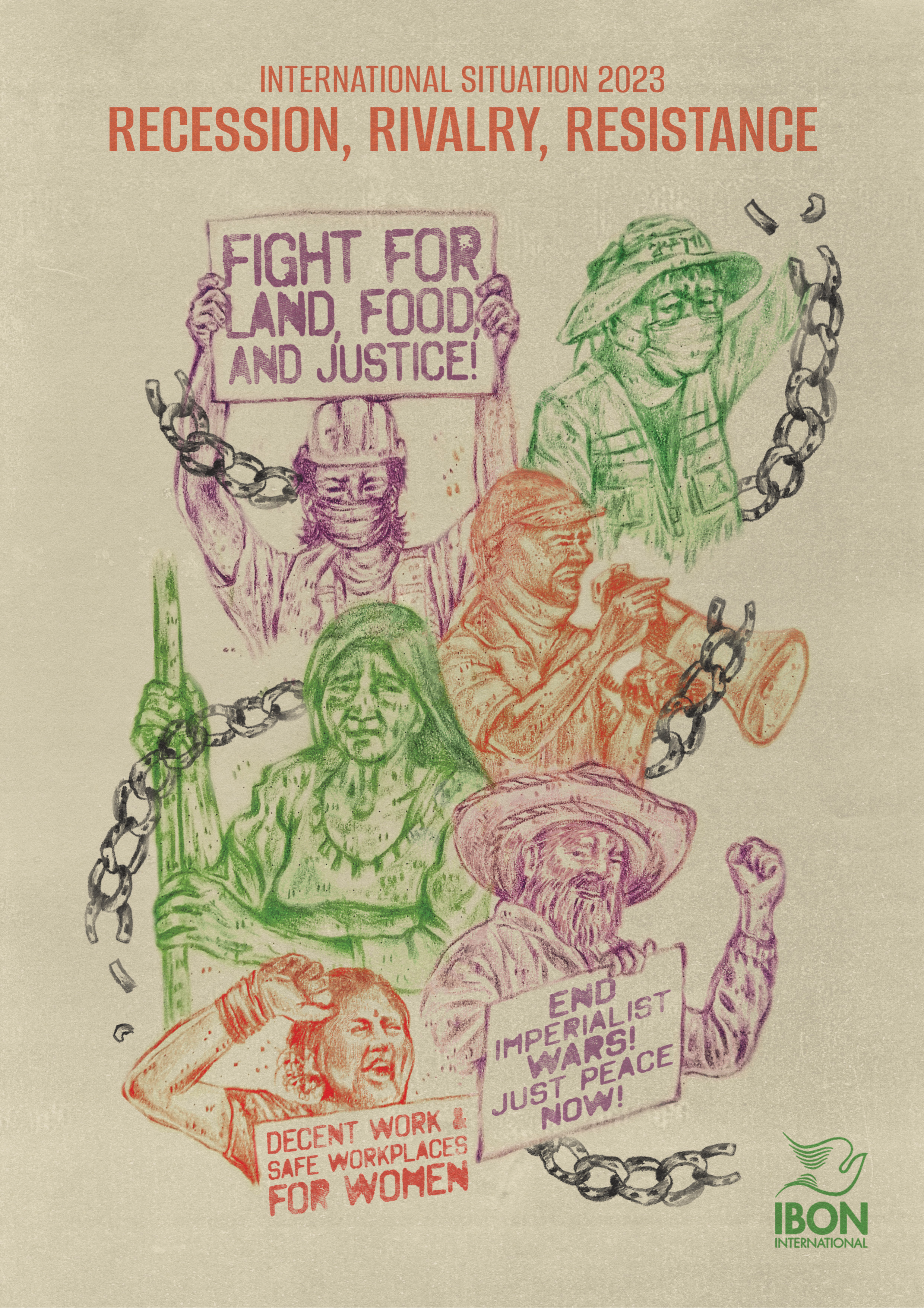- Version
- Download 187
- File Size 15.26 MB
- File Count 1
- Create Date May 19, 2023
- Last Updated June 6, 2023
International Situation 2023: Recession, rivalry, resistance
In 2023 “poly-crisis,” a term referring to the multiple, overlapping crises, became a buzzword in policymaking circles. But these crises–in debt, climate, inflation, jobs, poverty, food, as well as ongoing war–did not emerge from a vacuum. Before the pandemic, many of these trends were already looming. The decade after the 2008 global recession were years of protracted crisis. Investment and economic growth slowed since; debt was already rising before the pandemic.
The world’s working peoples face widening inequalities day by day. The wages of billions of workers lag behind inflation. In 2022, the average global inflation reached the highest level in two decades at 9%, driving a ‘cost-of-living’ crisis across developed and developing countries. Women and girls in the global South bear the worst impacts of rising living costs.
The climate crisis is intensifying to the brink of planetary decline, amid continuing carbon emissions and resource exploitation of the global South by Northern companies and states. Rising weather extremes have caused economic and non-economic losses and damages to communities in the global South. Conflict, climate, and economic factors are driving migration globally.
Amid crises, the US still dominate in world military spending. Conflicting interests between the US, China, and Russia are driving regional economic agreements and war.
Overall, the world economic system is still running on the profit-driven engine, a system that has generated multiple and intersecting crises. Transnational corporations, ultra-wealthy capital holders, and local elites simultaneously profit from and generate crises, while working and marginalised peoples suffer from socioeconomic impacts.
